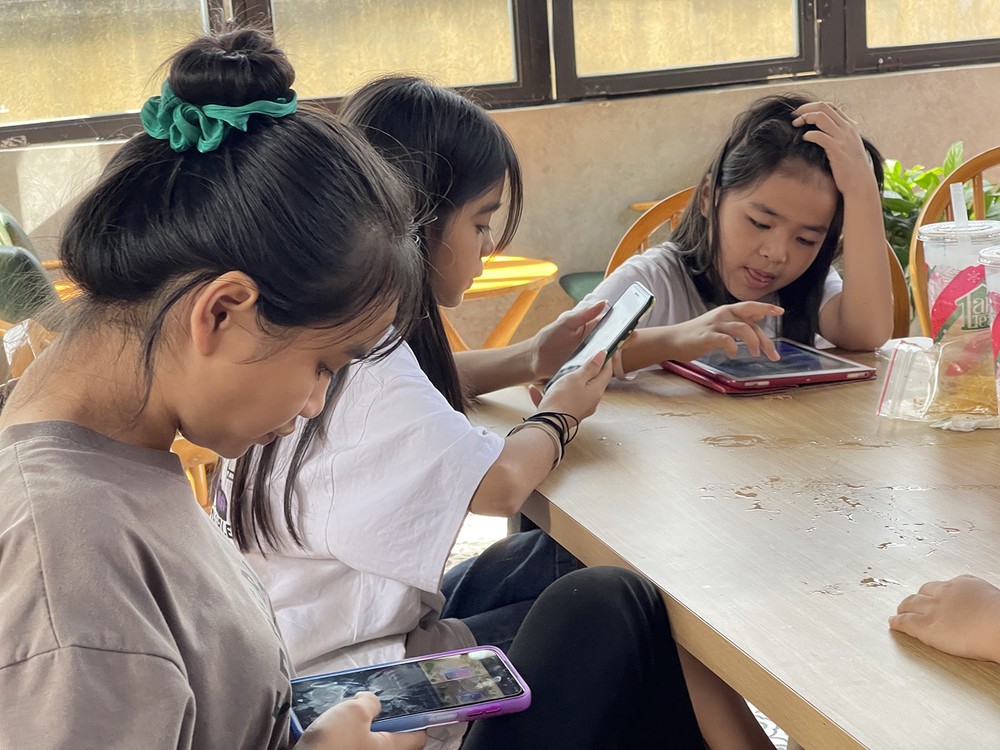 |
Children spend time surfing social networks |
It is thought that only Facebook of celebrities or business people are hacked and their accounts are taken over by bad guys; however, a 12-grade student’s Facebook was hacked also and her picture was posted in a group calling for virtual currency investment.
After her Facebook was hacked, the girl in Ho Chi Minh City’s Binh Chanh District quickly sought the assistance of family relatives, teachers and friends to report the case to Facebook administrators.
Being a vice monitor in her class, the girl usually shares photos of class activities and tags her friends. Moreover, she has also participated in suggested surveys on Facebook and comments in groups sharing issues related to Gen Z life.
One day, friends discovered that the girl’s photos became the avatar of a male user who was introduced as a financial expert who is specialized in digital currency investment consultation.
The girl soon informed her parents, homeroom teachers and friends asking them to simultaneously report the account for violating community standards, and Facebook applied community standards and that account was locked. She said that after the incident, she learned a lesson when using Facebook.
Many parents said they follow their children closely in the "virtual world", but they also admitted that they cannot fully control what their children like, where to comment, who to make friends with, what to watch, and what pictures to post.
According to a report by the United Nations Children's Fund (UNICEF), as of August 2022, up to 82 percent of Vietnamese children aged 12-13 were connected to the internet and 93 percent of children aged 14-15 were connected to the internet.
Worse, the number of Vietnamese children participating in cyberspace activities is very high, especially after the Covid-19 pandemic.
Similarly, the survey results carried out in three months by the Department of Children Affairs under the Ministry of Labor, Invalids and Social Affairs in 2022 also showed that 89 percent of children access and use the internet, and 87 percent of them use the internet every day. Thus, a child spends on average 5-7 hours a day on social networks but only 36 percent of children and teenagers at aged 16-17 are taught about online safety.
Invisible cyberbullying
In fact, there have been many sad stories due to surfing social networks.
Even child bullying and school physical violence do not only include student-on-student fighting in school settings but cyberbullying as well.
A 43-year-old woman in Binh Thanh District remembered her girl’s story. Realizing that her daughter had become quiet recently, the woman and her husband spent one week encouraging the little daughter to tell them what happened to her. In the end, she found that the daughter posted a complaint about learning by group in the foreign language center’s website anonymously; however, the admin accidentally disclosed her name. The mother soon solved the problem to release the daughter’s bad feelings, but her daughter was greatly affected psychologically and was afraid to communicate for quite a long time.
Statistics from DataReportal offering thousands of free reports of what people are really doing online around the world estimates that by February 2023, TikTok had 49.9 million users aged 18 and above in Vietnam. Moreover, the Southeast Asian country ranks sixth of ten countries with the most users globally, according to online report provider DataReportal. In particular, more and more Vietnamese young people are accessing this video-sharing platform, but there are no policies to protect children on this platform.
The Ministry of Information and Communications announced its inspection results in early October that the TikTok platform had many violations such as no measures or tools to ensure the safety of confidential information about children's private lives, no warning of risks for children providing or changing confidential information about their private life. Plus, children under 13 years old are allowed to open accounts in TikTok even though the social media platform is only for people 13 years old and older.
Though the Cyber Security Law was effective from January 1, 2019, it still does not have a specific definition of bullying, attacks, or child identity theft of children in cyberspace. This leads to difficulties in identifying violations and applying appropriate handling measures. Currently, responsible agencies have not closely coordinated in detecting and handling acts of bullying, attacks, and child identity theft in cyberspace; so, no timely intervention has been conducted.
























